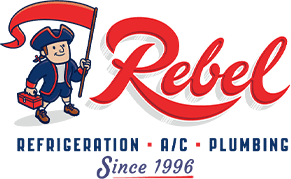When there is an excessive amount of moisture present, such as from a water leak, mold can begin to grow inside on surfaces like drywall, plywood, and tile. Mold can cause severe structural and aesthetic damage because they consume wood and other organic materials that are commonly found in our home.
To get a better understanding on the association between a leaky plumbing system and mold, read on!
Do water leaks always result in mold growth?
If there is a water leak, there is a good chance that mold will grow, but this doesn't mean it will always happen. Mold growth depends on how much water damage there is, how many surfaces are affected, and how well the area is cleaned and dried.
Any excess water or moisture is highly recommended to be quickly removed and dried as soon as possible to prevent the growth and spread of mold.
How soon after a leak does mold grow?
Mold typically grows within 24 to 48 hours of water damage. If the circumstances are right and ideal for mold growth, it can invade your house and spread within a matter of days.
How soon will drywall mold spread?
Because mold typically takes 24 to 48 hours to germinate and thrive, the 48-to-72-hour window is crucial for preventing mold formation. Once fungus takes root on drywall, it can serve as a breeding ground for thousands of spores, spreading quickly in the air surrounding the wall.
How long does a ceiling take to dry out after a leak?
Depending on how wet the ceiling becomes, the amount of time needed to completely dry may vary. For example, it could take as little as two weeks or as much as four weeks. To speed up the drying process, we recommend opening all the windows to increase airflow. An alternative would be to use a hair dryer on the affected areas.
Ways to Prevent Mold
After a plumbing leak, a common mistake made by many homeowners is to clean and dry the visible surfaces. They fail to take care of any water or moisture present behind walls or underneath the flooring which provides mold plenty of room to develop.
Here are some ways to prevent mold build-up:
- Check the house for water leaks and have them fixed as soon as possible if found.
- Promptly clean up any wet spills or moisture as soon as you notice them.
- Make sure the house, especially the bathroom, has adequate airflow. To increase ventilation, open all windows, doors, and fans.
- Ensure that all crawl spaces and attic spaces are well aired and insulated.
Get Help from Professionals
If you suspect that you have mold growing in your home due to a leak, we recommend getting professional help as soon as possible. Mold is not only harmful to the structural damage of your home, it can also cause health issues and illnesses. For professional assistance, give us a call at (702) 766-9436 or contact us here!


